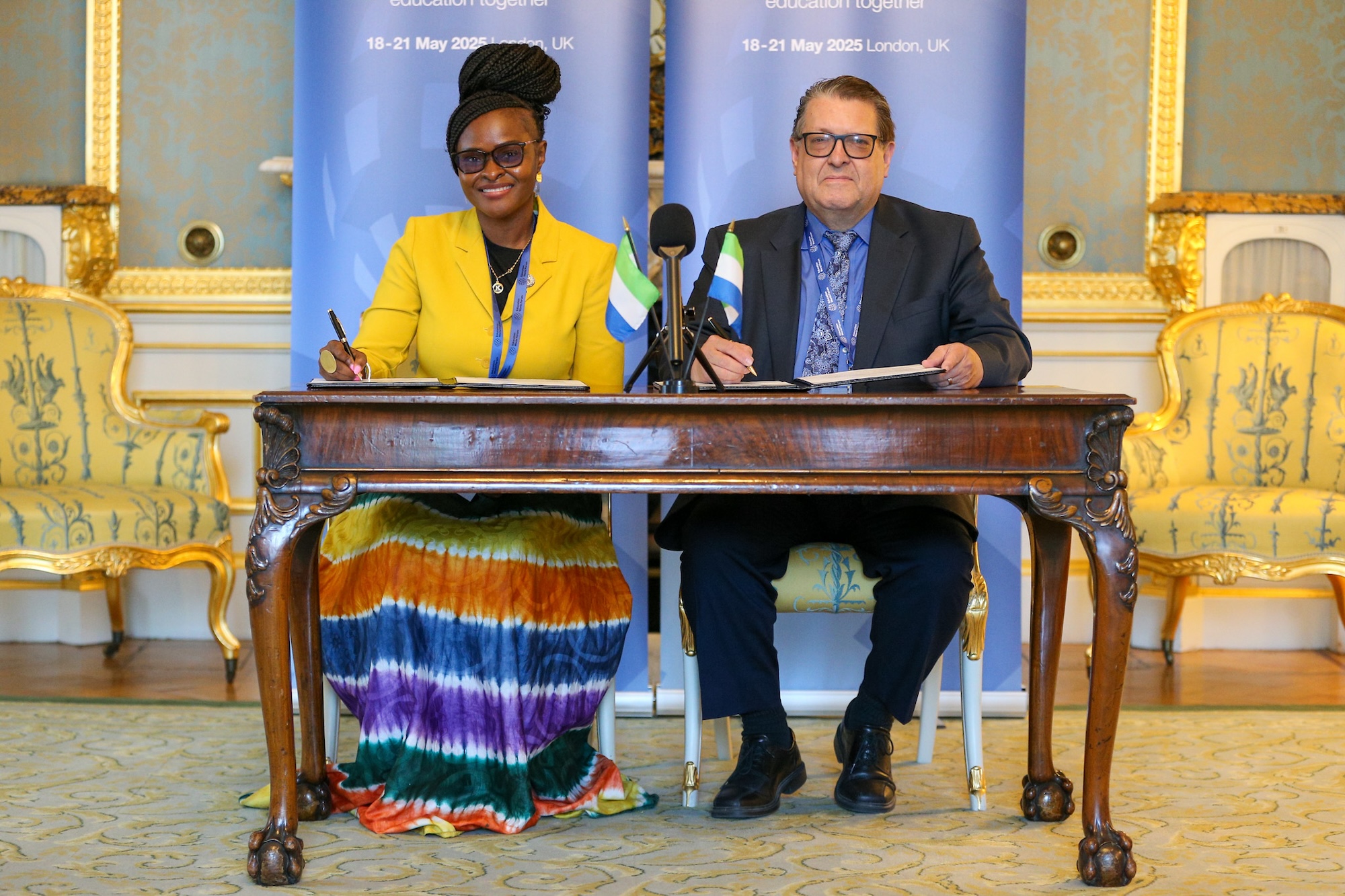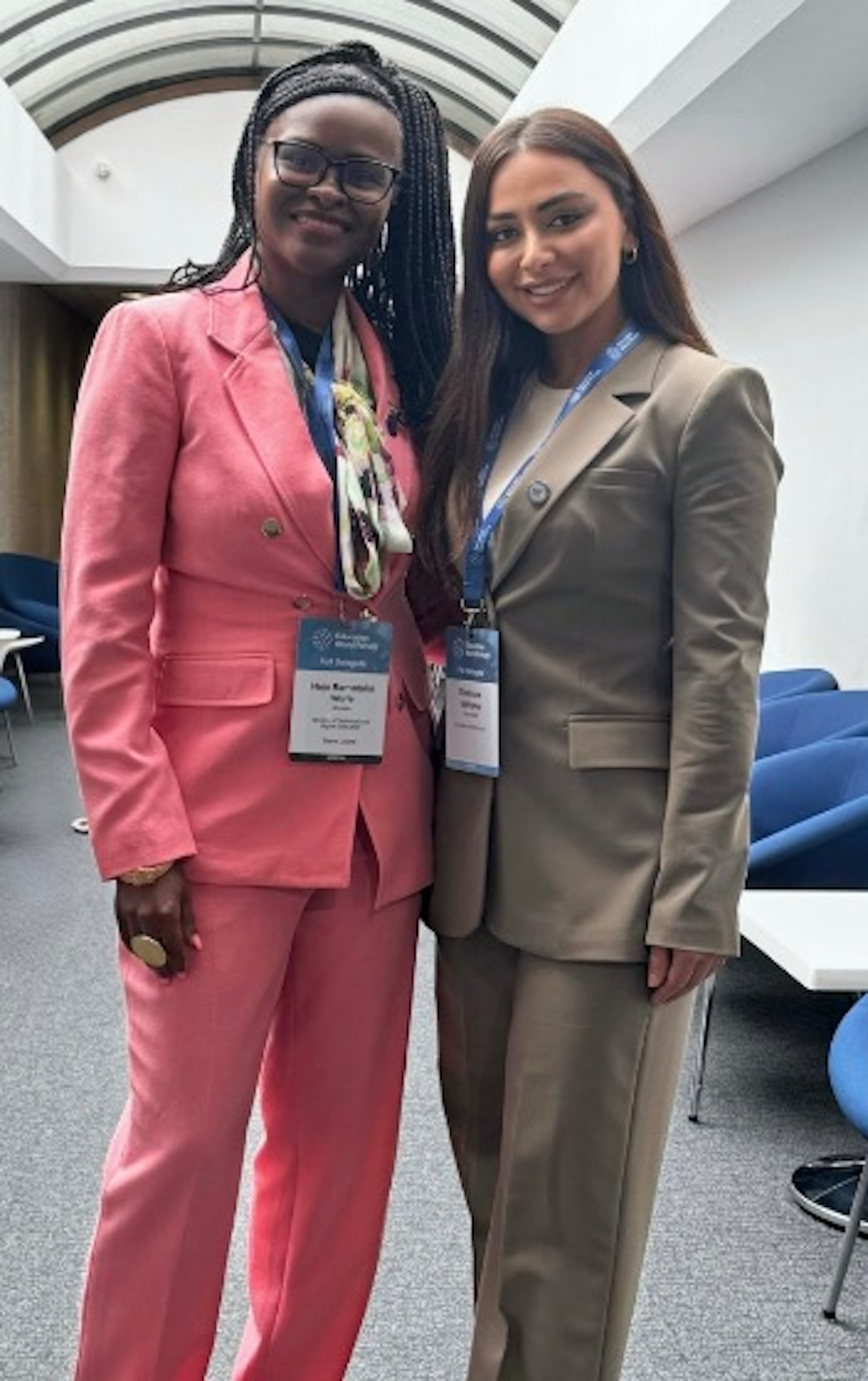Education in an era of rapid technological change: interview with Sierra Leone Minister of Technical and Higher Education
Master of Public Policy student Shabnam Taghiyeva and researcher Michael Lundgren share their reflections on the 2025 Education World Forum, following a conversation with Dr Haja Ramatulai Wurie, Honorable Minister of Technical and Higher Education of Sierra Leone.

Dr Haja Ramatulai Wurie, Honorable Minister of Technical and Higher Education of Sierra Leone, has spent “sleepless nights” worrying about what she calls the “half-life of skills” in today’s world, where rapid technological change makes skills become obsolete at a faster rate than ever.
For instance, coding – previously considered critical for economic growth – is now being rapidly reshaped by open-access artificial intelligence (AI) models like ChatGPT.
Shabnam Taghiyeva at Oxford University’s Blavatnik School of Government interviewed Hon Minister Dr Wurie one of the delegates to the 2025 Education World Forum (EWF) in London, the world’s largest gathering of education and skills ministers. Hon Minister Dr Wurie stressed the importance of adjusting to rapid technological change through investments in technical education and training.
Under the leadership of His Excellency President Julius Maada Bio and led by Hon Minister Dr Wurie, Sierra Leone’s government is working with partners to create a digital training platform focused on 21st-century skills. The platform will equip workers with not only technical skills related to digital literacy and 21st-century technologies, but also soft skills like critical thinking, teamwork, and communication. These are in demand across all economic sectors.
These reforms are closely aligned with Sierra Leone’s Medium-Term National Development Plan — specifically, the Big Five Game Changers — notably Pillar 2 (Human Capital Development), which nurtures 21st-century skills and education, and Pillar 4 (Infrastructure, Technology, and Innovation), which underpins the nation’s digital transformation and infrastructure growth. Together, they illustrate a strategic vision for inclusive, tech-enabled development.
The platform will serve both pre-service learners and working professionals. This is just one example of an investment in technical education which Dr Wurie called “vital to building the workforce our country needs for sustained economic growth.” In addition to developing a 21st-century workforce, Sierra Leone will leverage modern technology to improve its education system.
During EWF, Sierra Leone announced a cutting-edge public-private partnership that will leverage AI for educational improvement. Hon Minister Dr Wurie, on behalf of the Ministry of Technical and Higher Education of Sierra Leone, signed a Memorandum of Understanding with Agilix Labs Inc., a US-based educational technology company, to establish a Future Learning Institute for Sierra Leone. The Institute will integrate AI technology into the education system, reducing the time and cost of curriculum development, providing access to AI-powered tutoring, and improving learner assessment speed and quality. Hon Minister Dr Wurie noted that the government aims to "[demystify] AI, helping learners see it as a support system, not a decision-maker.”

Reflecting on the conversation, Shabnam described how the meeting “reminded me how deeply intertwined digital transformation and inclusive education must be in today’s policymaking”. “Her clarity of vision and openness to collaboration were truly inspiring,” she added.

